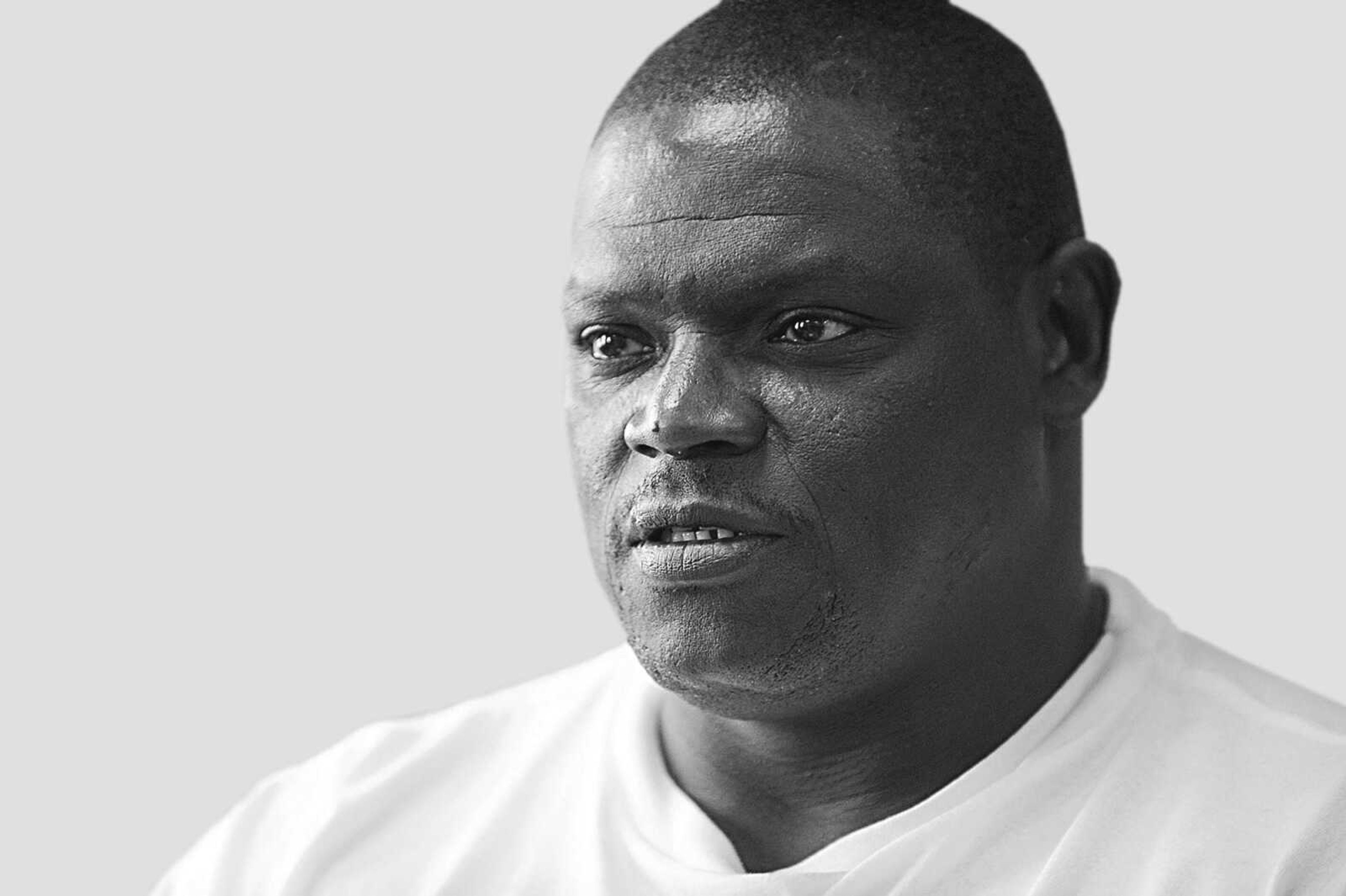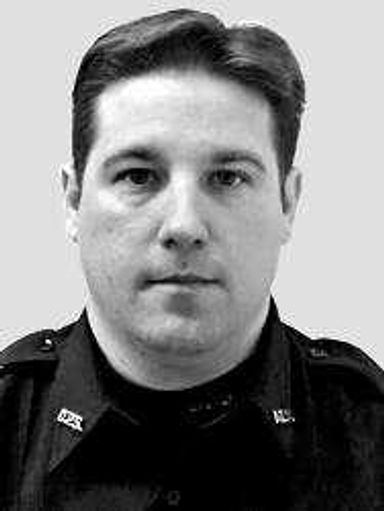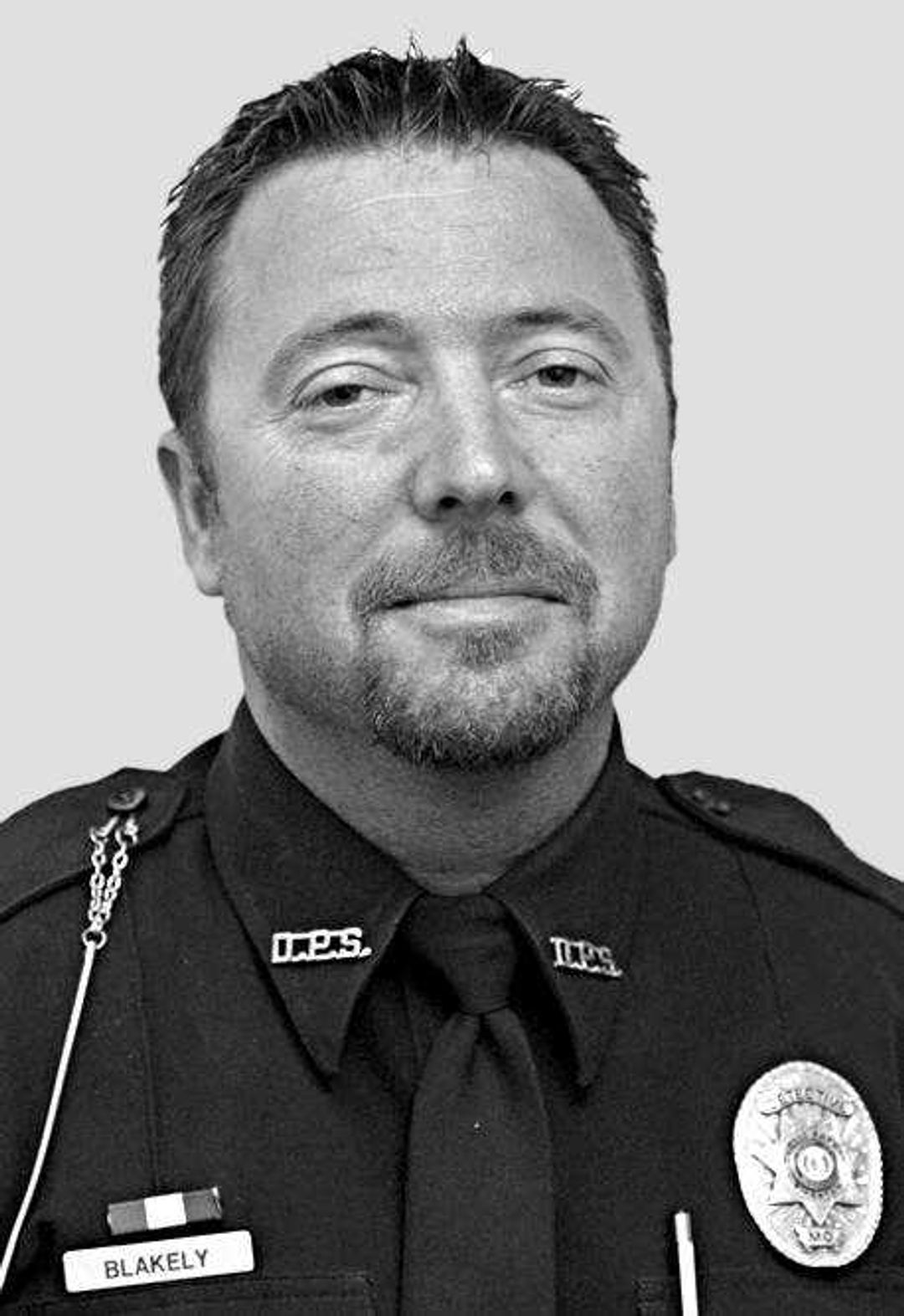Lying police? Missing files, lost evidence: Newspaper investigation reveals glaring details in David Robinson case
An extensive examination of public records relating to the investigation of a 2000 Sikeston, Missouri, murder has revealed potential perjury by a detective; missing evidence from state prosecutors' files; missing investigative documents from police archives; and a police department's nonexistent investigation into a suspect who later confessed to the murder of Sheila Box...
An extensive examination of public records relating to the investigation of a 2000 Sikeston, Missouri, murder has revealed potential perjury by a detective; missing evidence from state prosecutors' files; missing investigative documents from police archives; and a police department's nonexistent investigation into a suspect who later confessed to the murder of Sheila Box.

Following the Southeast Missourian's series of stories on David Robinson's claim of innocence in December, the newspaper continued its examination of the case. The initial series detailed the testimony of two witnesses, their eventual recantations and the taped confession of the crime by Romanze Mosby, who committed suicide in prison before he could be called to testify under oath.

No physical evidence linked Robinson to the crime. Robinson, serving life in prison without parole, has admitted he had several run-ins with the police before his murder conviction. He has said he was guilty of several crimes over the years, but is innocent of the Box murder. He said he believes he was targeted for the murder because of his long standing adversarial relationship with police.

Transcripts examined before the newspaper's original series showed the lead detective in the case, John Blakely, testified he did not know Mosby was a suspect until after Robinson's trial, even though records show a tip came to law enforcement nearly four months before trial in August 2001, and prompted two searches for the murder weapon by the Missouri Water Patrol at a local lake.
Mosby confessed to Box's murder in a taped recording to public-defense investigator Butch Johnson in 2004. All told, he eventually would confess the crime to six people, Robinson's attorneys say.
But back in May 2001, then-Scott County sheriff's deputy Bobby Sullivan received a tip alleging Mosby, not Robinson, shot Box. Sullivan testified at trial he told Sikeston detectives about the tip, but they didn't follow up on it, so he did.
After the newspaper's original series of stories, the newspaper filed 19 open-records requests from 10 public institutions to examine how Mosby was investigated in the Box murder and -- given the conflicting statements by Sullivan and Blakely at trial -- whether there were documents showing the Sikeston Department of Public Safety knew Mosby to be a suspect.
The files, most of which had not been examined by journalists, revealed an undercurrent of inflammatory accusations by witnesses against police, including claims of threats made by Blakely to secure or prevent testimony against Robinson.
Blakely denied in court he threatened witnesses.
He and other police and city officials declined multiple interview requests for them to respond to the newspaper's findings.
Many records sought by the newspaper have been lost, destroyed or withheld, even though state law requires them to be stored permanently. (See related stories, coming Tuesday and Wednesday.)
Among the missing materials are the only tape recordings of interviews known to exist in the case. They were pretrial recordings of interviews between Scott County sheriff's deputy Sullivan and Mosby, the suspect, as well as interviews with two other men who are said to have heard Mosby confess or were told by those close to Mosby he committed the crime.
Also missing are documents from another Mosby shooting, including evidence documents and interview reports that could shed light on whether Mosby was being investigated for the Box shooting and whether the gun Mosby turned in to police was used in any of the shootings to which he confessed.
One of the most troubling records concerning the credibility of the investigation obtained by the Southeast Missourian is a pretrial deposition in which Sullivan offers details about sharing the Mosby tip with the Sikeston detectives. He testified he believed Robinson was not guilty of the murder and was leaning toward Mosby as the killer. He also testified he believed the Sikeston detectives had developed "tunnel vision" in the case.
Sullivan now is employed with the Sikeston DPS.
He expressed clearly at the time that Blakely was informed about the tip. Blakely's knowledge of Mosby as a suspect in the Box case is important because Blakely, in 2000 and 2001, investigated Romanze Mosby and his brother, Louis, in four shootings that included five victims.
He had inside knowledge of Mosby's involvement in these crimes, as well as the suspect's associates, and could have made connections and cross-checked evidence in the Box case. But records show Blakely did not do so until years after Robinson was convicted.
Documents show Blakely knew Romanze Mosby had access to a 9 mm gun, the same caliber of gun used in the Box shooting. He knew Mosby had a violent history.
Documents also show a stolen car connected to a Mosby-involved shooting was found at 845 Ruth St., the same location where Mosby told sheriff's deputy Sullivan that Box was shot (though Mosby blamed his cousin during that interview). Blakely also might have discovered that a victim in one of the Mosby-related shootings was Box's stepson, a fact Robinson's defense learned while investigating Mosby before trial and later confirmed by the Southeast Missourian during an interview with the victim.
In a pretrial deposition in the Box case, James Beck's father, L.A. Thompson, testified that his son was "getting wind of what was going on" and warned him to "quit snooping around. He was going to wind up getting himself killed." Beck was later shot in a shooting where Mosby was a suspect.
The Southeast Missourian could not find any record indicating that Blakely, who worked both cases, pursued a connection between the Box murder and the Beck shooting.
Brooks shooting
Because of the missing documents, it's impossible to examine the investigation and cross-reference the evidence in the only shooting for which Romanze Mosby received a conviction, the shooting of a man named Larry Brooks.
It is unknown why no bullets from that shooting were submitted to the SEMO Crime Lab. Ballistics records provided by the Missouri State Highway Patrol show the only evidence from the Nov. 1, 2000, shooting given to the crime lab was a .32 revolver Mosby voluntarily gave to Blakely as part of a plea deal.
The other Mosby-related shootings all involved 9 mm bullets.
Interview requests to Blakely, Sullivan and DPS chief Mike Williams were declined, as were requests for interviews to Sikeston Mayor Steve Burch and city manager J.D. Douglass.
Sullivan's specific testimony also raises questions about whether Blakely gave false testimony under oath. Sullivan was deposed pretrial, Aug. 13, 2001, just two weeks before Robinson was to face trial. Jurors never heard Sullivan's testimony about the Mosby tip at trial, as his testimony was deemed hearsay.
Sullivan's deposition
Sullivan testified in the pretrial deposition he would rather not have investigated the tip, but Sikeston detectives didn't want to pursue it.
"So my understanding, and correct me if I'm wrong, is that your conversation with Detective [Mike] Williams is that he wanted you to check it out?" asked assistant attorney general Elizabeth Bock, who prosecuted the case for the state.
"Basically, I got it, so it was pretty much generally if it was going to get done, you know, I needed to take care of it," Sullivan said.
Later, Sullivan said, "Basically it's their case. I mean, the least amount of investigators you have involved in it, you know, the better off you are going to be. For example, if I'm investigating something from the start of it, which I believe Blakely was the original investigator on this, I'm sure he could sit down here with us and answer any questions we might have, for the most part. You know, now that I was involved in it, the only thing I can answer is what I've been told from here, you know ...
"[Blakely] knew what I received, but as far as him saying, 'Let me look into it,' anything like that, no, it didn't happen."
Sullivan went further when questioned by defense attorney Chris Davis, who asked the deputy whether he notified Blakely, and if so, why Blakely hadn't followed up on the investigation.
"To me, I just felt like they got -- once this all came up I mean, I feel like they just got tunnel vision on it and went with it, which it can happen. ..." Sullivan said.
"So you felt like Detective Blakely didn't really care about what you had to say about this, that he felt like it was an open-and-shut case?" the defense attorney asked.
"I mean, not so much him, but I mean, I got that impression from all the investigators," Sullivan said.
He then described sitting down with several Sikeston detectives to discuss "the whole thing," including the Mosby tips and the work he'd done on the Mosby angle.
"Me, Detective Williams, Blakely was there, [Dan] Armour was there and I believe Detective [Flint] Dees. ...
" ... Something about this whole thing (Robinson case), it's funny, I just felt like it (the tip) had to be followed up on to the point to where it felt like it couldn't go anywhere else. For them to be able to say a lot of the same things, that's what still strikes me as odd as far as wondering if there is some doubt there as far as did David actually do it or did Romanze do it."
Blakely's denial
But in a post-trial appeals deposition in 2015, Blakely emphatically contradicted Sullivan's testimony, denying multiple times that he knew Mosby was a suspect in the Box murder.
"Did the name Romanze Mosby ever come up during your investigation of this murder back in 2000, 2001?" assistant attorney general Katharine Dolin asked.
"After the -- I believe after the actual conviction, yes ma'am," Blakely said.
"So to your recollection, you don't remember investigating Romanze Mosby during the initial investigation of the murder?"
"No. That would have been followed up on if we would have received that information."
"Do you recall though?"
"No."
"You don't recall?"
"I don't recall."
Interviewed by phone, Butch Johnson, an investigator with the Missouri Public Defender's office who worked on the Robinson case, said it's unbelievable Sullivan pursued Mosby as a suspect without Blakely's knowledge.
"No. Blakely knew about Mosby," Johnson said, later adding, "I have no doubts whatsoever Blakely knew about Romanze."
In response to a Sunshine Law request about investigative materials connected to the Box case -- in particular, any investigation into Mosby as a suspect -- the Sikeston DPS offered many reports and memos from the Robinson case, but no records regarding any investigation of Mosby and no reports or memos regarding the Missouri Water Patrol's report on a dive for the weapon, which was spurred by the Mosby tip.
Robinson still is serving a life sentence without the possibility of parole. The Attorney General's Office has defended the conviction, claiming the recantations were not credible; Mosby's confession was inadmissible because he refused to sign an affidavit to certify it; Robinson's alibi witnesses contradicted each other at trial; Johnson, the public-defense investigator, was overly aggressive in his pursuit of a recantation from one of the witnesses; and other legal technicalities.
Robinson has six days of hearings scheduled in August before a Special Master appointed by the Missouri Supreme Court. He is hoping for an exoneration or retrial.
The Southeast Missourian’s special report will resume with more stories in the coming days:
Monday: Witnesses say police used illegal tampering techniques to intimidate witnesses and secure testimony.
Tuesday: Many records once known to exist are missing from the Sikeston Department of Public Safety.
Wednesday: Evidence from pretrial interviews are missing from the Missouri Attorney General’s Office, and Robinson’s lead attorney said he never has seen the evidence in the defense file.
bmiller@semissourian.com
(573) 388-3625
tgraef@semissourian.com
(573) 388-3627
Connect with the Southeast Missourian Newsroom:
For corrections to this story or other insights for the editor, click here. To submit a letter to the editor, click here. To learn about the Southeast Missourian’s AI Policy, click here.










